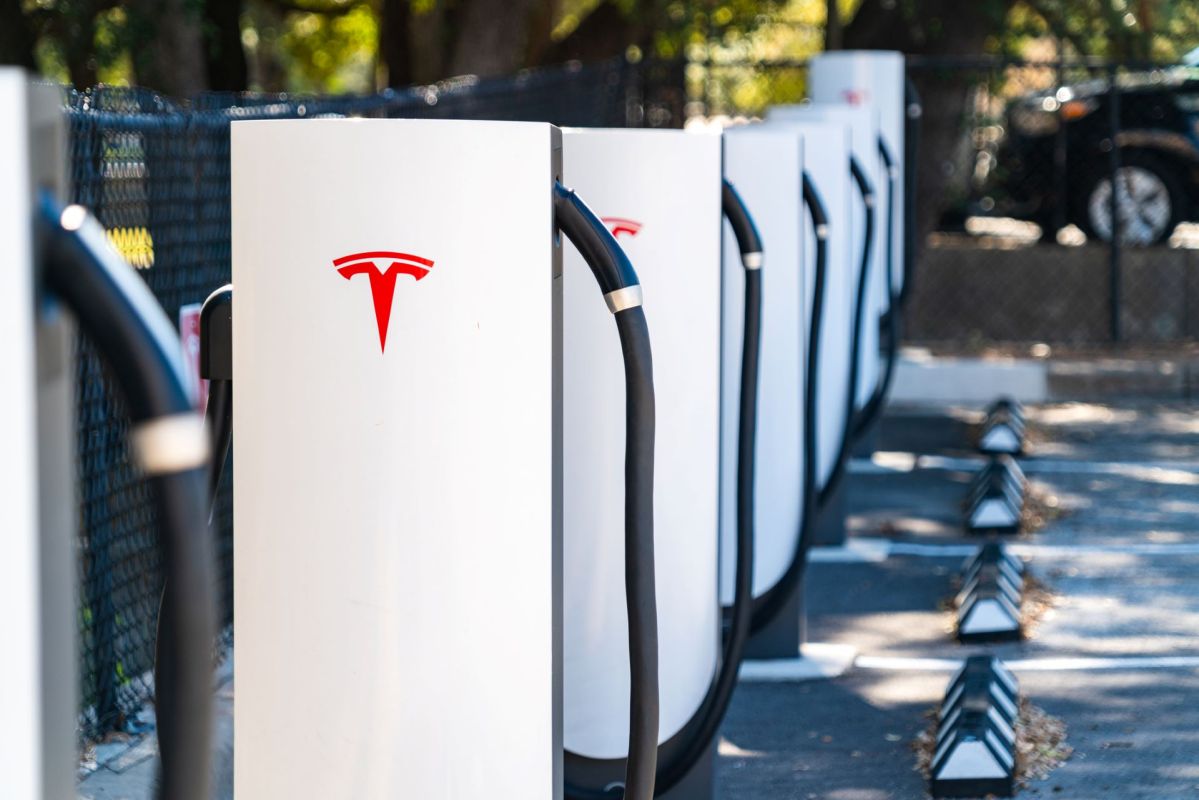The White House recently struck a deal with Tesla — the biggest electric vehicle (EV) manufacturer in the market — that gives the company federal subsidies in exchange for building its charge sites with the capability to power up most non-Tesla vehicles.
Currently, EVs made by Tesla use the North American Charging Standard (NACS), whereas the government's charging standard is the Combined Charging System (CCS).
Tesla created its earliest EVs before the CCS standard was set, as Quartz reported. As a result, the Supercharger Network, which uses the NACS, was originally only created for Teslas — long before the government added the CCS standard for other EVs. The problem now is that while Tesla is manufacturing chargers at an impressive rate, those chargers are not compatible with all EVs.
The CCS is favored by the government over Tesla's charger for a few reasons. One is that it's an international standard — manufacturers around the globe use it. The connector is simple and has the capability for high voltage, which charges vehicles quickly.
Tesla is also a private company, so endorsing its standard would force other manufacturers to conform to NACS. This would eventually waste current CCS vehicles by running them off the road with a lack of charging stations.
To help solve the issue, Tesla will be eligible for government subsidies to manufacture charging stations that can charge both NACS and CCS vehicles.
The White House has yet to confirm the specifics of spending the $7.5 billion in Bipartisan Infrastructure Law money allocated to EV charging investment. But for Tesla, it means that they will be eligible for some of these federal funds to continue building charging stations, provided they have adaptors for CCS vehicles as well — making it more convenient for consumers to fuel up anywhere and not just at specific stations.
The massive development will ensure that customers aren't discouraged to buy certain brands of EVs due to a lack of charging stations. According to a White House briefing, the goal is to make "at least 7,500 [Tesla] chargers available for all EVs by the end of 2024."
The goal is part of larger initiatives to have EVs account for at least 50% of new car sales by 2030 and to significantly reduce harmful gases in the atmosphere by 2050.
All of the initiatives will benefit consumers immensely. Cutting down on harmful gases will create better air quality for us to breathe, and more accessible EVs will save consumers money long-term. EVs cost approximately half as much to fuel, according to GreenCars, and they also require less maintenance than gas-powered cars.
"[T]he future of American transportation is on track to be cleaner, safer, more affordable, and more reliable than ever before," The White House stated in a press briefing announcing the EV charger initiative.
Join our free newsletter for cool news and actionable info that makes it easy to help yourself while helping the planet.









